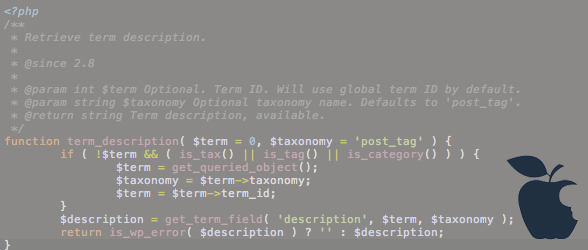Tutorials
Introduction to WordPress Plugin Development 101
I’m beginning a new tutorial series on WordPress Plugin Development 101. It will start at the very beginning and look at the fundamentals of plugin development in WordPress. This is a quick video post Video (embed is broken) http://www.screenr.com/sVA7 The series will cover the following topics: What makes a plugin What can/should be a plugin…
Stripe Integration Part 9 – The Stripe Button
Custom Taxonomy Friendly Archives
I do not write about themes very often, but I have just published a tutorial over at WP Explorer on how to ensure that your theme’s archive files work well with custom taxonomies. As a plugin developer, I get frustrated at times when I have a plugin that utilizes custom taxonomies and I get support…
Querying Comments with WP_Comment_Query and Meta Query in 3.5
WordPress 3.5 has introduced meta queries for the WP_Comment_Query class, which allows us to retrieve comments from the database that have specific meta values and/or keys attached to theme, just like we have been able to do with posts since 3.2.
Build a Search Logging Plugin
Knowing what your users are searching for can be extremely useful and important. In this members-only tutorial we’re going to look at how to create a simple search logging plugin that will record every search query performed on your site. We will be using the WP_Logging class that I released a week or two ago…
Hide wp-login.php with Restrict Content Pro
With membership sites, it is very common that admins want to hide the default WordPress login screen and force users to go to a custom, front-end login page instead. Restrict Content Pro has an option that makes this really simple to do. This entry is part 7 of 22 in the Customizing Restrict Content Pro…
Stripe Integration Part 8 – Working with Invoices
The Stripe invoice system allows us to easily add charges to our existing customers subscriptions, such as one time sign up fees, extra monthly charges for new features, or anything else. Just like every other feature in the Stripe API, it’s extremely simple to use, and in this part of the Stripe Integration tutorial series…
WP_Logging – A General Use Logging System for WordPress
WP_Logging is a general use logging system that I have written for WordPress. It was first written for my Easy Digital Downloads but I have adapted it for general use. The main idea behind the class it to provide a simple solution for logging events, actions, errors, etc, inside of your WordPress plugins or themes.
I Wrote Some Really Dangerous Code
Sometimes when looking back at something I wrote in the past, perhaps two years ago, I discover some really terrible code I’ve written. Some of it is simply poor quality with really bad formatting, and some of it is outright dangerous from a security point. This evening I discovered some of that “dangerous” code inside…
Ensure Your Scripts and Styles Are Not Cached with Updates
Have you ever pushed out an update that included modifications to scripts or styles and then later had to tell someone to clear their cache or do a hard refresh in order to see the updates? There is actually a very simple way to avoid this scenario and force the browser to display the updated…
Making PHP Variables Available to Your JS
If you have ever written a plugin that uses any form of Javascript, you will probably have come across the problem of passing configuration options from PHP to Javascript. Take an image slider plugin, such as Soliloquy for example: most likely there is a settings page of some kind that lets the user set the…
User Follow System – Part 3
In the previous part of Creating a User Follow System, we looked at the basic shell functions that we need to write for our plugin to function. Now we are going to get into actually writing those functions. We will go one by one and write each one from scratch. Also note that we will…
User Follow System – Part 2
Part 1 of the User Follow System series looked at laying out the main structure of the plugin. For part 2, we’re going to continue that and lay out the main skeleton functions that we need for our plugin. These will include the functions for following a user, unfollowing a user, checking if a user…
Use TidyPHP with Sublime Text 2 for Lightning Fast Formatting
Writing clean code is something you should always strive for in your WordPress projects, and you should always do what you can to adhere to the WordPress Coding Standards. I tested out a really awesome tool today that you should seriously consider adding to your workflow if you are a Sublime Text 2 user.



